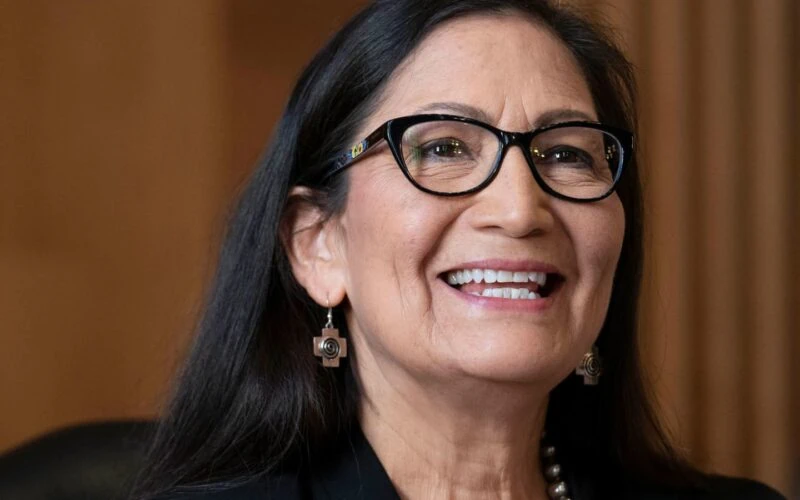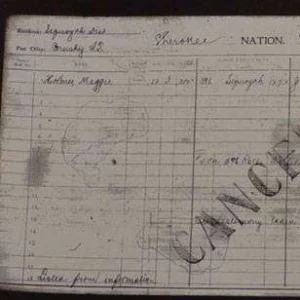When we speak of indigenous leaders making remarkable strides in the U.S., one name that resonates deeply is Deb Haaland.
A beacon of hope for many Native Americans and an emblem of tenacity and perseverance, Haaland's journey from being a member of the Laguna Pueblo tribe to becoming the first Native American Cabinet Secretary is nothing short of inspiring.
Early Life and Roots
Deb Haaland was born on December 2, 1960, in Winslow, Arizona. She belongs to the Laguna Pueblo people, one of the 19 Pueblo tribes in New Mexico. Growing up, she was imbued with a deep sense of her cultural roots. Stories from her grandparents and parents instilled in her the values of hard work, community service, and the importance of preserving her indigenous heritage.
Education and Initial Years
Haaland wasn't born with a silver spoon. She worked her way through college, university, and law school, often juggling multiple jobs while being a single mother. Her educational journey took her to the University of New Mexico and later the UNM Law School, where she earned her J.D. This academic rigor, coupled with her lived experiences, fostered a desire to make a difference, particularly for the indigenous community.
Political Ascent
Deb Haaland's political journey began at the grassroots level. Her early involvement with tribal politics and community activism paved the way for her engagement with broader political issues. She served as the New Mexico Democratic Party's Chair and played crucial roles in local campaigns.
However, the defining moment came in 2018 when Haaland was elected as one of the first two Native American women to serve in Congress. Representing New Mexico's 1st congressional district, she quickly made her mark, championing issues close to her heart like climate change, women's rights, and of course, indigenous rights.
Historic Appointment
The true watershed moment in Haaland's career came with her nomination and subsequent confirmation as the U.S. Secretary of the Interior in 2021 under the Biden-Harris administration. This role, historically significant given that the Department of the Interior has had a tumultuous relationship with the country's indigenous people, was a testament to the changing times and a step towards reconciliation.
As Secretary, Haaland now oversees agencies that play pivotal roles in the management and conservation of federal lands and natural resources. More importantly, she is in a position to reshape the relationship between the U.S. government and the Native American tribes, ushering in an era of mutual respect and cooperation.
Legacy and Future Impact
Deb Haaland's journey serves as an inspiring testament to the fact that with tenacity, grit, and a strong sense of purpose, one can overcome systemic barriers and rewrite history. Her presence in the U.S. Cabinet gives hope to countless indigenous youth that they too can achieve greatness and make impactful changes.
She is more than just a political figure; Haaland embodies the dreams and aspirations of many Native Americans who have for long been marginalized. With her at the helm, there's hope for a more inclusive, empathetic, and just America.
FAQs
Who is Deb Haaland?
Deb Haaland is a trailblazing Native American leader from the Laguna Pueblo tribe. Born on December 2, 1960, in Winslow, Arizona, she made history by becoming one of the first two Native American women to serve in the U.S. Congress. Later, she broke even more barriers by being appointed as the U.S. Secretary of the Interior in 2021, the first Native American ever to hold a Cabinet position.
Why is her appointment as the Secretary of the Interior significant?
Haaland's appointment is historically pivotal because the Department of the Interior has, in the past, been responsible for many policies that adversely affected Native Americans. Her role signifies a move towards repairing relationships between the U.S. government and indigenous tribes. Additionally, the Department oversees federal lands and natural resources, making her position crucial in shaping future environmental and land-use policies.
What was her early life like?
Deb grew up deeply connected to her Laguna Pueblo roots. She heard stories from her grandparents and parents that instilled values of hard work, community service, and cultural preservation. She faced economic challenges, working multiple jobs to support her education and her daughter as a single mother.
How did she enter politics?
Deb Haaland began her political career at the grassroots level, getting involved with tribal politics and community activism. Her dedication and passion led her to serve as the New Mexico Democratic Party's Chair. Her significant breakthrough came in 2018 when she was elected to represent New Mexico's 1st congressional district in the U.S. Congress.
What are some key issues she champions?
Throughout her political career, Haaland has been a vocal advocate for a range of issues, including indigenous rights, environmental conservation, and climate change mitigation. She has also actively promoted women's rights, healthcare, and education reforms.
How does Haaland's appointment influence the younger generation of Native Americans?
Haaland's success story serves as a beacon of hope and a source of inspiration for many young Native Americans. It sends a powerful message that indigenous voices matter and can hold significant positions of power and influence in the U.S. Her journey motivates young indigenous individuals to pursue their dreams and break through systemic barriers.
How can we expect the relationship between the U.S. government and Native American tribes to evolve under her leadership?
With Haaland's deep-rooted understanding of indigenous issues, there's optimism that her tenure will foster an era of enhanced mutual respect and cooperation between Native American tribes and the U.S. government. Her presence is expected to promote a more inclusive approach to policy-making and provide a platform for indigenous voices in significant decisions related to land, resources, and cultural preservation.
Conclusion
Deb Haaland's ascent to one of the highest offices in the U.S. is not just a personal achievement but a significant milestone in America's journey towards genuine inclusivity. Her story is an inspiration for everyone, especially for young indigenous individuals looking to make a mark in the world. As we celebrate indigenous leaders, let Deb Haaland's journey be a beacon, illuminating the path towards a brighter, more inclusive future.




